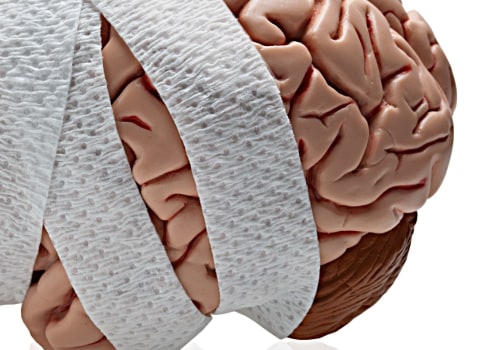The alcohol recoveryprogram starts here since new research indicates that it takes at least twoweeks for the brain to function normally. The brain's ability to control theurge to drink decreases until it has healed. Alcohol has affected the brain'scognitive function, which accounts for this. How long does it take for the mindand body to recover from alcohol? is a question that many individuals seekingrecovery from alcohol addiction or who are in the early stages of recoveryfrequently ask.
The quick answer is? afew days to a few months. Chronic alcohol use has cumulative consequences thatcan last a lifetime on the heart, blood pressure, liver, intestines, digestivetract, brain, and neurological system. The healing process can be sped up,though, with the correct medical attention and nourishment of your body througha well-balanced diet, plenty of water, and good exercise. He claims that 2 to 6hours after your last drink, minor detox symptoms may start to show.
If you drink less,they typically peak in 1 to 3 days, but if you drink more, they can persist forup to a week. According to him, persistent withdrawal symptoms are extremelyuncommon yet they can endure for a month or longer. While the first stage ofwithdrawal is the part of rehabilitation that receives the most attention,complete detoxification can occasionally take up to two weeks. Positivebenefits can also advance quickly when the body eliminates the remaining remnantsof alcohol, despite psychological symptoms.
Four to five daysfollowing their last drink, many people report their alcohol withdrawalsymptoms have subsided. Around the third day, the symptoms typically get worse.Detoxification from alcohol typically takes one week.
You might anticipatewithdrawal symptoms to occur within a few hours or days if you use alcoholexcessively and then abruptly quit. However, they might be severe and evenfatal if you've been abusing alcohol for a long time.
Alcoholics are advisednot to attempt detoxification without ongoing care, ideally from a physician,medical professionals, and therapy specialists. A period of inpatient care isadvised by several experts.
According to LinSternlicht, a registered mental health counselor in Manhattan, "when aperson with an alcohol dependent stops drinking without a medical detox, it canbe exceedingly dangerous and even lethal."
Depending on factorssuch as your:
-History of Drinking
-Age
-Weight
After your last drink,minor detox symptoms may appear anywhere between two and six hours later,according to her. When a person drinks less, they normally reach their peak in1 to 3 days, although heavy drinkers may experience them for up to a week.Although they may endure for a month or longer, persistent withdrawal symptomsare rather uncommon, according to her.
Many individuals goingthrough withdrawal have these conditions, according to the Substance Abuse andMental Health Services Administration (SAMHSA):
-Feelings of unease, trepidation, and agitation
-Depressed emotions
-Feeling of tiredness
-The shakiness of the body
-Mood swings
-Muddled thinking
Bob Nies, a substancemisuse counselor with Professional Treatment Centers in Winter Park, Florida,claims that insomnia is another common symptom of alcohol detox.
A doctor examining apatient experiencing alcohol withdrawal often anticipates specific physicalindications and symptoms, such as:
-Shaky hands
-Elevated blood pressure and a fast heartbeat
-Enlarged eyes
-A fever or elevated body temperature
-Breathing quickly
In addition, 3 to 5percent of persons who detox from heavy drinking, according to SAMHSA,experience delirium tremens, a disease that necessitates immediate medicalattention. The signs may include:
-Fever
-Utter uneasiness and perplexity
-Seizures
-Hallucinations
-Delirium tremens, if left untreated, can result in heartattack, stroke, and even death.
How long it takes forone's mind and body to recover from alcoholism is a common question among thoseseeking recovery from alcoholism or those who are just beginning this process.The quick answer is? between a few days to several months. Chronic alcohol usehas cumulative consequences that can affect your heart and blood pressure,liver function, gut, and digestive system, brain and nerve system, and more.But you may hasten the healing process by receiving the right medicalattention, feeding your body with a balanced diet, drinking plenty of water,and engaging in regular healthy activity.
However, anyone whowants to stop drinking alcohol, especially those who have been heavy orfrequent drinkers, should first get medical help to properly detox. Alcoholwithdrawal when done abruptly can be fatal, thus it's crucial to have medicalsupervision to lessen any negative effects.
Your blood alcoholcontent may take between 24 and 48 hours to reach zero after you stop drinking.You'll suffer withdrawal symptoms at this time, sometimes known as the"hangover," which include nausea, headache, trembling, mood changes,weariness, and an accelerated heart rate. These symptoms should go away in afew days, however, some people may experience nausea and trembling a few dayslater. You may also notice that you perspire a lot while you sleep, which isone way that the body is getting rid of the alcohol.
Within three days ofbeing alcohol-free, your brain cells will start to regenerate. Anxiety andnausea may be present during this time. Due to alcohol's effects on the brain'sanxiety and depressive disorder receptors, anxiety is a common symptom forthose who are just starting to quit drinking. Anxiety can become overwhelmingfor certain people if alcohol's sedative effects on these receptors are absent.Safe interventions and emotional support can lessen these emotions and providethem with a sense of community.
Symptoms of withdrawalshould disappear after about a week. Seek emergency medical treatment if youhave any severe health effects, including tremors, hallucinations, or seizures.You may experience "brain fog," which usually lifts after the firstweek, or hazy thinking.
Your body willgradually revert to its pre-injury state after the first week. Your digestivesystem will be in balance, and you might find that your bowel motions start tobecome more regular and that you have less nausea overall. Your capacity for arestful night's sleep will increase, and your skin and eyes will appear moreradiant and healthy.
After roughly threeweeks, your brain's neurons will start to regenerate and continue to grow or regrowth.The degree of anxiety and despair should lessen, but many people who are justgetting clean may discover that they have a mental health issue that may betreated with the right medicine and therapy.
Even though it cantake several months before you feel completely clear, your brain's "whitematter" will grow in size after around the first month of abstaining fromalcohol. After quitting alcohol, your liver usually takes the longest to heal.Even while some people who have a fatty liver may see the organ regain health,it might not fully recover. Regular liver enzyme testing can be beneficial.








Leave Reply